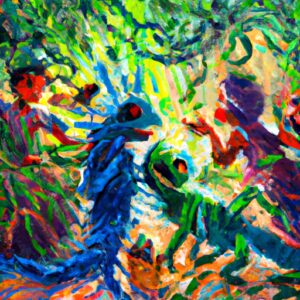What does da una parte… dall’altra means?
If you’re here, it means your Italian is getting good, so well done!
We can use Da una parte… dall’altra when we speak to give two quick ideas without developing them too much.
We can also use it when we write an essay or a well-structured email to develop the two ideas a bit more compared to when we speak.
How to use da una parte…dall’atra when speaking?
This structure is very common when speaking.
You will notice that we always start the sentence with da una parte…, whereas dall’altra… always introduces the second idea.
Also, we might add e (and) or ma (but) before dall’altra… becoming “e dall’altra…” or “ma dall’altra…”, as you can see in the examples below:
Da una parte vorrei aiutarlo, ma dall’altra credo che non se lo meriti.
On one side, I’d like to help him but on the other side, I think he doesn’t deserve it.
Da una parte mi fa piacere, dall’altra mi preoccupa.
On the one hand, it makes me happy. On the other hand, it makes me worried.
Da una parte mi fa ridere e dall’altra so che è una cosa seria.
On one side, it makes me laugh and on the other side, I know it’s a serious thing.
Da una parte mi fa sentire speciale e dall’altra so che non è la persona giusta per me.
On the one hand, she makes me feel special and on the other hand, I know she’s not the right person for me.
How to use da una parte…dall’atra when writing?
We use this structure a lot when we write formal texts like articles, essays, or emails.
In this case, as we said earlier, we might develop our ideas a bit further, or we might write longer sentences.
Here are three examples:
Da una parte gli scienziati hanno cercato di misurare il tempo in modo sempre più preciso e dall’altra hanno notato che quando nulla cambia in un sistema pare che il tempo non scorra.
On the one hand, scientists have tried to measure time more and more precisely, and on the other hand, they have noticed that when nothing changes in a system, it seems that time doesn’t flow.
Da una parte lo scrittore privilegia il modo narrativo “fantastico” e dall’altra il cineasta è direttamente impegnato nella critica della societa contemporanea.
On the one hand, the writer favors the “fantastic” narrative style, and on the other hand, the filmmaker is directly involved in the critique of contemporary society.
Da una parte gli adolescenti vivono un momento delicato, quanto fondamentale del loro crescere, dall’altra spesso gli adulti si chiedono come comportarsi, come essere presenti o assenti.
On one side, teenagers experience a delicate and fundamental moment of their growth. On the other side, adults often ask themselves how to behave and how to be present or absent.










One Response
Great explanation! This really helped me understand Italian grammar better. Thank you for sharing this lesson!